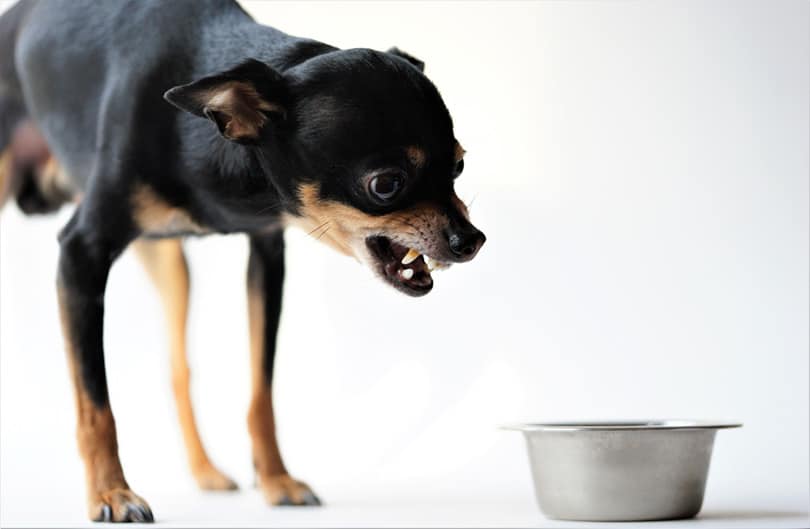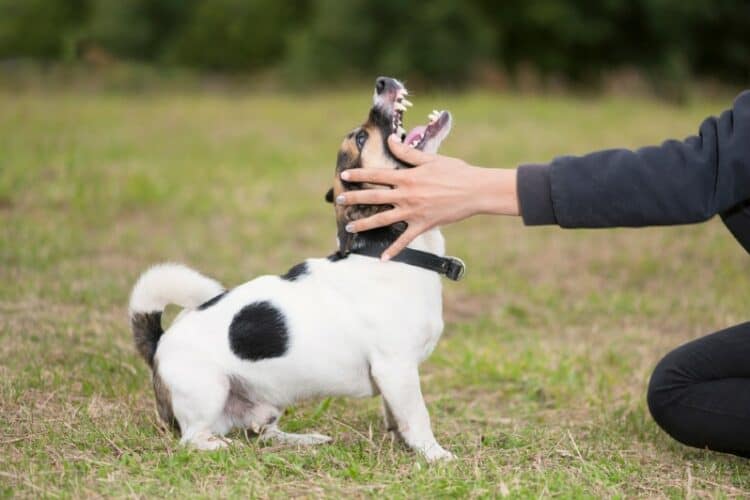It seems that small dogs are perceived by many people as being aggressive, sometimes even more so than large dogs. Why would this be the case? It turns out that there are quite a few reasons that small dogs might be aggressive. Let’s check them out.
The 5 Reasons Small Dogs Are So Aggressive
1. Evolution
The thing about small dogs like Chihuahuas is that they can’t cause nearly as much damage as large dogs like Rottweilers and Siberian Huskies can. So, while humans have made an effort to breed aggressive behaviors out of large dogs, they haven’t done so with small dog breeds because they aren’t really seen as threats to humans. Small dogs may simply not have evolved to be less aggressive like many large dog breeds have, which is why the prevalence of aggression in small dogs might seem more noticeable today.
2. Growth Factor Genes
A study published in the National Library of Medicine indicates that there might be a correlation between aggressive behavior and growth factor genes that are responsible for making a dog small. It turns out these genes are associated with things like anxiety, social fear, touch sensitivity, and owner-directed aggression. This is not to say that all little dogs are aggressive due to their genes, but those genes may play a role in aggression for certain dogs.
3. Self-Defense
It’s no secret that small dogs can more easily be injured in fights than large dogs. That coupled with the fact that most things in life are bigger than dogs like Chihuahuas, Pomeranians, and Dachshunds, it’s no wonder that little dogs may feel the need to become aggressive as a form of self-defense — at least occasionally. When a large dog sees a child running toward them to play, they might not see the child as a big threat. However, when the same situation happens to a small dog, they may feel threatened and try to defend themselves.

4. Lack of Socialization
If dogs do not have opportunities to socialize with other animals and people, there is always a chance that they will become socially aggressive as they age. This is particularly true for small dogs. It’s easy to carry small dogs around in bags rather than let them walk around on leashes and interact with others in social settings. It’s also easy to avoid parks with small dogs due to a fear of big dogs attacking them. Instances like these can lead to less socialization and more aggression.
5. Owner Behavior
Small dogs are typically treated differently than large dogs. Owners tend to overlook minor aggressive behaviors in small dogs, whereas large dog owners wouldn’t (and shouldn’t) let their pooches get away with such behaviors. Some small dogs lack training and tend to get away with things that big dogs can’t, like jumping on the couch to claim territory. The truth is that small dogs need the same training, supervision, and behavior correction that large dogs do.
Not All Small Dogs Are Aggressive
It is important to keep in mind that not all small dogs are aggressive. There are many well-behaved, loving tiny dogs out there that love to socialize with other people and animals. There are also plenty of large dogs that are aggressive. So, no dog should be automatically put into an aggressive or non-aggressive category simply due to their size. No matter the dog’s size, proper training and socialization can help minimize the risk of any aggression as time goes on.
Final Thoughts
There are several reasons that a small dog might be aggressive, but it can be hard to determine that reason unless you know the dog’s history and lifestyle at home. There are many things that owners can do to ensure that their little dogs grow up happy, healthy, and social, with few aggressions to ward off, even if genetics are at play.
The first step is understanding why small dogs might be aggressive. The next step is determining which reasons apply to your pooch. Then, you can work to combat aggressive behavior by addressing each reason individually. Don’t be afraid to work with a professional dog trainer or veterinarian for support and guidance!
Featured Image Credit: Shutterstock
















